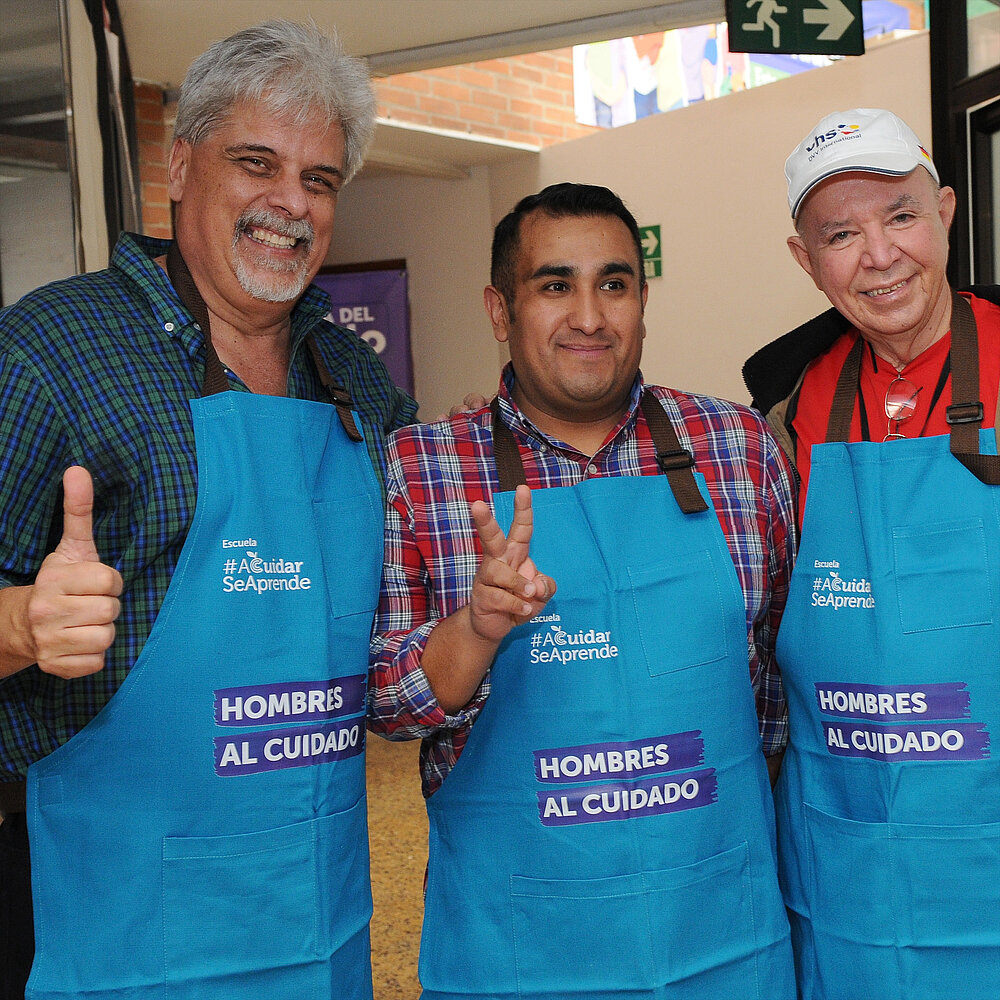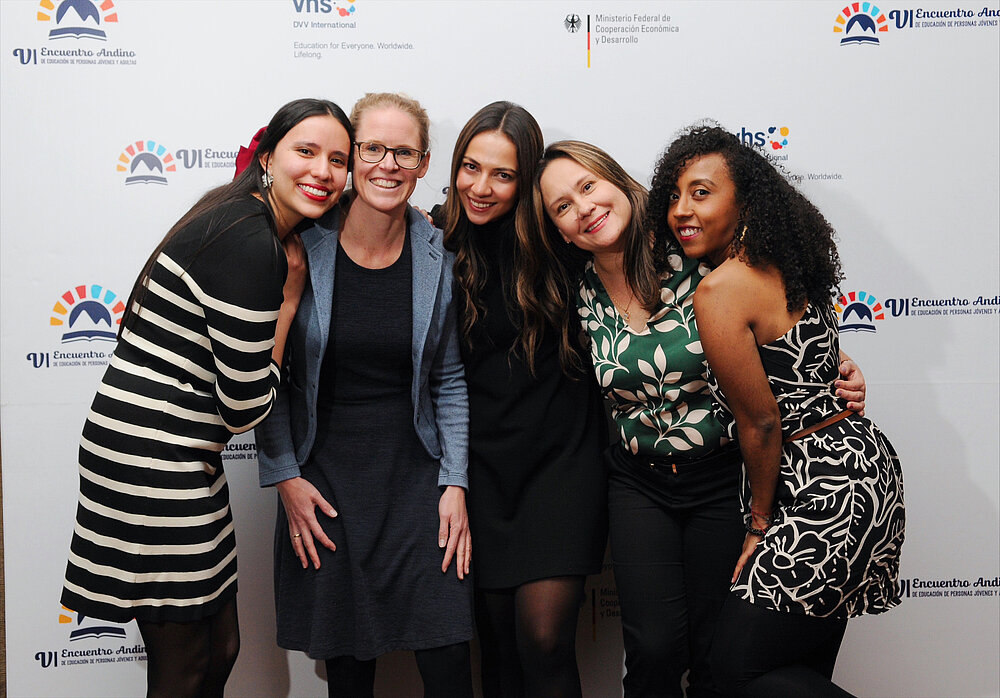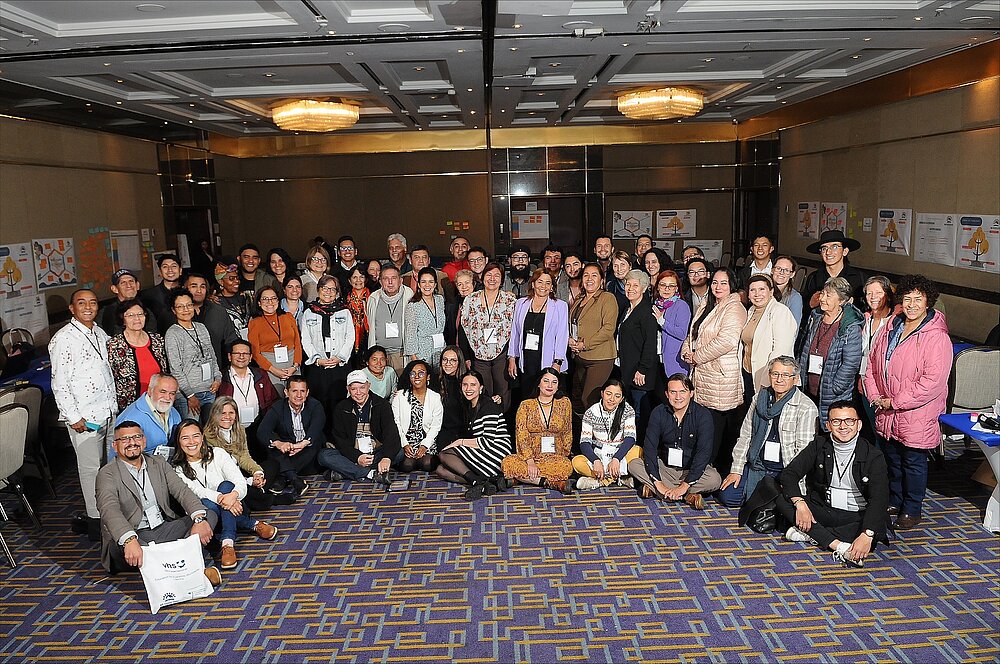Andean Meeting VI was held in Bogotà, for the first time in hybrid mode, from March 28-30 2023. It was attended by government representatives, civil society organizations, academics, and private sector representatives, from Mexico, Guatemala, Cuba, Ecuador, Peru, and Germany.
The 6th Andean Meeting was a space that allowed for the envisioning of possible local and regional strategies for the proper implementation of the agreements signed at CONFINTEA VII and generated a space for dialogue and exchange of experiences among the different regional actors of adult learning and education. It also recognized and valued the diversity of experience, as well as the multiple learning experiences that are vital for the development of human capacities in formal and non-formal educational frameworks.
On the first day, entitled “Let’s Build”, the participants addressed the challenges of ALE as well as the implementation of the Marrakech International Framework and its relationship with the Agenda 2030 in the Latin American context. Five working tables were developed, organized in five key areas: governance, financing, participation, policy and quality. In this space, the different actors that are currently working on ALE at the local, national, and international levels shared their experiences and reflections.
Some of the challenges identified were: the absence of dialogue spaces that ensure decolonization, anti-racist and depatriarchalized perspectives, low prioritization of ALE in the public budget, absence of ALE public policies constructed in a collective and participatory manner, as well as decontextualized pedagogies, which do not have the holistic vision that responds to the needs of the ALE students and to the principles of lifelong learning.
On the second day, “New Horizons”, experiences from Pasto-Nariño, San José de Uré-Córdoba, Quibdó-Chocó, Nuquí-Chocó and Bogotá were presented. Afterwards, there was a “Knowledge dialogue” among the different actors of ALE (government, civil society organizations, academics, and the private sector). This “Knowledge dialogue” discussed the possible bridges which could be built between the actors of ALE mentioned above in order to strengthen an integral and holistic ALE, with better practices of formal, non-formal and informal learning processes which recognize the different human modes of learning throughout life.
On the third day, for “Integral and Holistic ALE”, we visited A Cuidar se Aprende, a school located in one of the Manzanas del Cuidado in Bogotá. This school is an action initiative of the Calma Program, led since 2020 by the District Secretary of Culture, Recreation, and Sports.
The Secretary team illustrated the two strategies of the program: (1) Calm Line, which aims to assist and accompany men in perilous situations and/or emotional crises, and provide a psycho-educational support service for the unlearning of machismo and (2) Men in Care. The latter focuses on generating pedagogical spaces. It seeks to increase the equal participation of men in care by contributing to the elimination of machismo. It approaches machismo from the point of view of civic culture and co-responsible and non-violent masculinities.
During the visit, the participants, together with the “Men in Care apron” and through games, toys and laughter, learned and/or unlearned about the work of caregiving.





